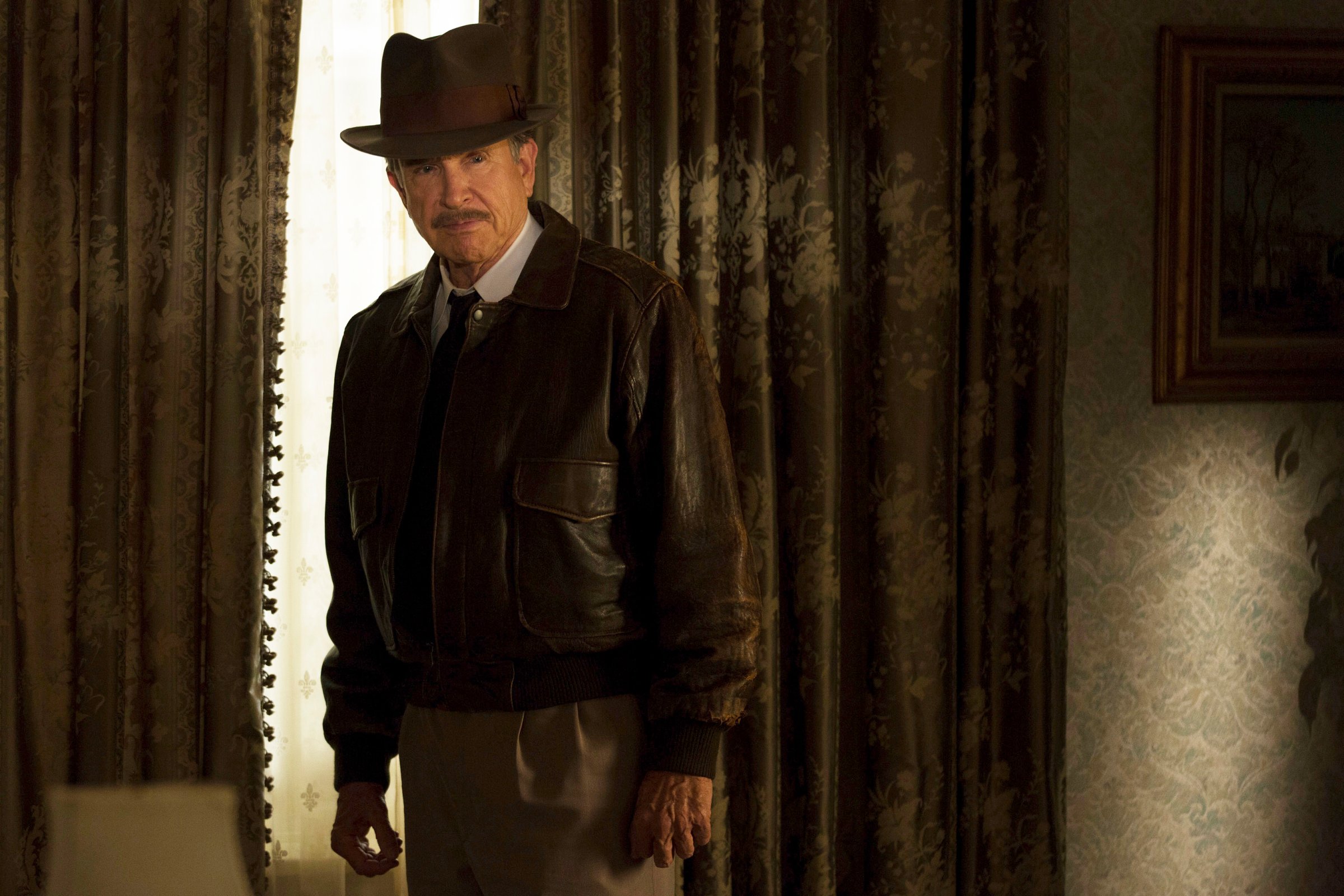
As a writer-director, Warren Beatty makes complex, ambitious movies that don’t quite work: He’s tried his hand at cartoon diversions (Dick Tracy) and passionately messy political statements (Bulworth), with flawed results. But there’s never any doubt that his brain is working every minute. Beatty is a striver, a little like brilliant weirdo Howard Hughes, the subject of Rules Don’t Apply, his first film as director in nearly 20 years. In fact, the best thing about the picture is Beatty’s performance, as Hughes himself. When the movie goes off the rails, as it often does, Beatty’s Hughes—delusional, batty, charming in a hypermanipulative fashion—helps focus our attention. This is a picture Beatty has wanted to make for years, and if the movie isn’t the achievement it should be, it’s at least entertaining in fits and starts.
Rules Don’t Apply, set mostly in late 1950s Los Angeles, is a fantasia, a fictional portrait of an eccentric genius in the later years of his life, with a jumbled love story folded in. That love story involves a young go-fer on the Hughes payroll, Frank Forbes (Alden Ehrenreich, previously seen as the charming rope-twirling cowboy in Hail, Caesar!), and Marla Mabrey (Lily Collins, of Mirror Mirror), a beauty queen who dreams of being an actress. Marla has been brought to Los Angeles by Hughes, to join a stable of similar young lovelies that he keeps around for his own amusement—if, that is, he even deigns to emerge from his lair and meet them.
Marla and her cohorts are put up in fancy apartments—Marla shares hers, for a time, with her upstanding Baptist mom, played by an amusingly virtuous Annette Bening—and provided with acting lessons, the better to fuel their naive, girlish dreams. Hughes, by this point in his late 50s and having dipped into aviation entrepreneurship, film producing, real-estate acquisitions, and flying (and crashing) planes, is happy to let these women believe they just might land a studio contract. (Never mind that the studio system was well on its way out by that time.) That way, he has a fresh pool of youthful female companionship at all times. Frank’s job is to drive Marla around Los Angeles as needed, with the caveat that he must never touch her.
Naturally, that temptation is impossible to resist. But when Marla is finally granted an audience with Hughes—their first, shadowy meeting involves his-and-hers TV dinners set out on folding trays—she becomes childishly infatuated with him, and he, in his weird, pseudo-adolescent way, with her. Frank is stuck between loyalty to his employer—whom he’s barely even met—and a flirtation with a girl who could end up being his true love.
Beatty lets the twists and turns of this odd triangular relationship meander too freely. The movie has a breezy, stylized, penny-candy look, but it’s overlong and misshapen, too often rambling out of Beatty’s grasp. But whenever Beatty’s Hughes appears, the movie perks up temporarily. As Hughes—stammering, reticent, flummoxed by most human contact, but also at times awkwardly endearing—Beatty is like a warped-mirror version of John McCabe, the character he played in Robert Altman’s great, wintry western McCabe and Mrs. Miller. McCabe was a shambling secret romantic (“I’ve got poetry in me!”) in a bearskin coat. Beatty’s Hughes is similarly vulnerable, though far more egotistical. But both men are lost and confused in their respective landscapes—and Beatty locates the cracked, lonely lyricism in both of them.
More Must-Reads From TIME
- The 100 Most Influential People of 2024
- Coco Gauff Is Playing for Herself Now
- Scenes From Pro-Palestinian Encampments Across U.S. Universities
- 6 Compliments That Land Every Time
- If You're Dating Right Now , You're Brave: Column
- The AI That Could Heal a Divided Internet
- Fallout Is a Brilliant Model for the Future of Video Game Adaptations
- Want Weekly Recs on What to Watch, Read, and More? Sign Up for Worth Your Time
Contact us at letters@time.com